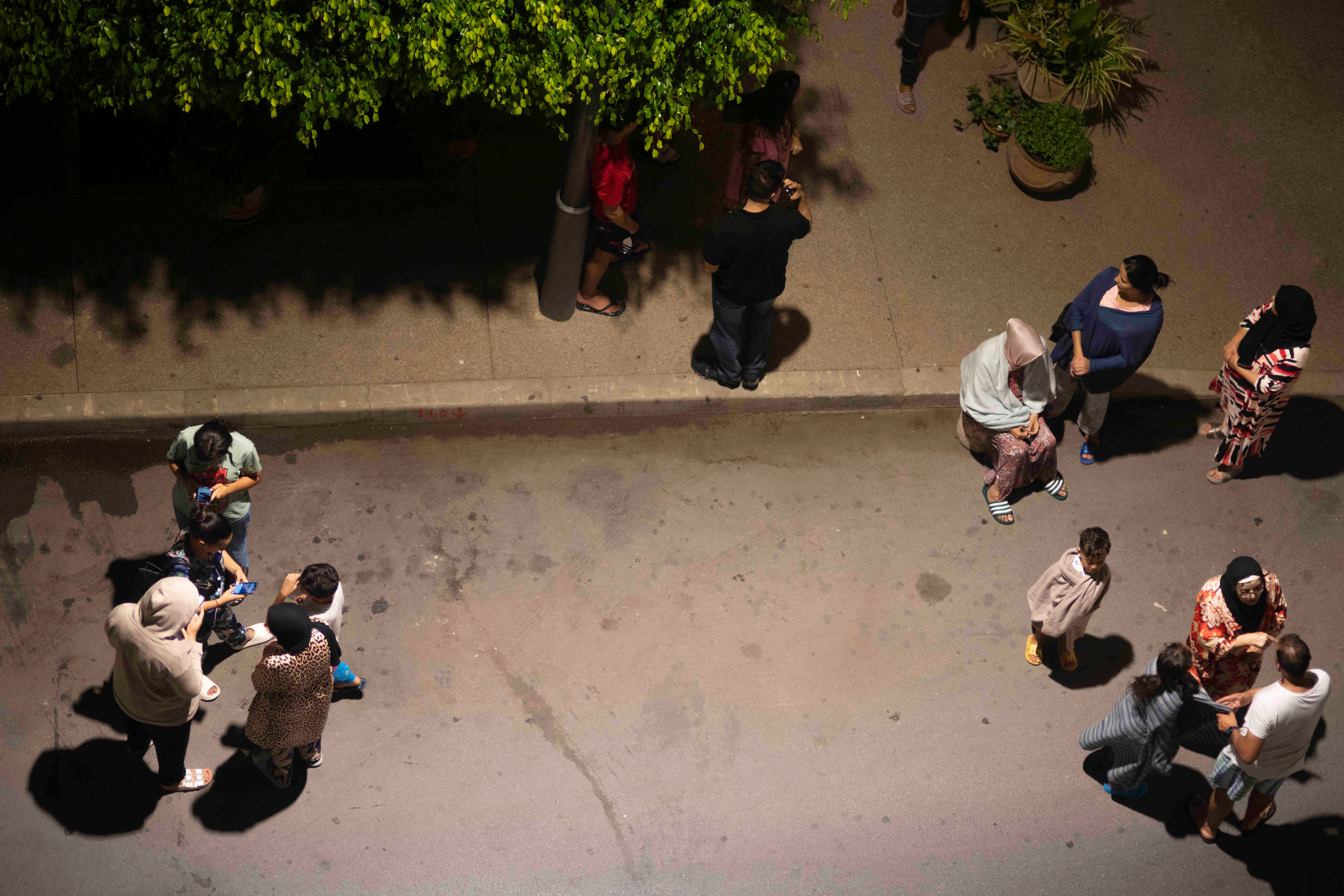British journalist woken by sound of wife screaming as earthquake hits Morocco
Hundreds of people were killed and buildings across the country were damaged in the tremor.

Your support helps us to tell the story
From reproductive rights to climate change to Big Tech, The Independent is on the ground when the story is developing. Whether it's investigating the financials of Elon Musk's pro-Trump PAC or producing our latest documentary, 'The A Word', which shines a light on the American women fighting for reproductive rights, we know how important it is to parse out the facts from the messaging.
At such a critical moment in US history, we need reporters on the ground. Your donation allows us to keep sending journalists to speak to both sides of the story.
The Independent is trusted by Americans across the entire political spectrum. And unlike many other quality news outlets, we choose not to lock Americans out of our reporting and analysis with paywalls. We believe quality journalism should be available to everyone, paid for by those who can afford it.
Your support makes all the difference.A British journalist living in Morocco said he was woken up by the sound of his wife screaming as an earthquake shook their home.
The 6.8 magnitude earthquake struck late on Friday, killing hundreds of people and damaging buildings across the country.
British journalist Martin Jay BBC Radio 4’s Today programme that he had just settled into sleep when it hit.
“The first hint was my wife screaming,” he said.
“We both had nodded off to sleep – but not into deep sleep – just into that light slumber I suppose … and she started screaming, and I just sort of opened my eyes and couldn’t quite join the dots up.
“I couldn’t quite equate the situation, I couldn’t imagine I was in the middle of an earthquake.
“Everything was vibrating, everything, the bed, the floor, the four walls.”
Part of their home was damaged by the earthquake, with some of the brick walls collapsing from the tremors.
However, Mr Jay said he had built his bedroom out of wood, which “probably” saved his life.
He said authorities warned the public not to go back into their homes after the earthquake.
“There were reports coming through on Moroccan media warning people not to go back into their homes,” he said.
“This was a nationwide message that was put out by the authorities.
“So, you have this weird evening of almost every single town in Morocco, most people are sitting on the ground outside of their houses or apartment blocks, because they were afraid of the second earthquake which they predicted would come two hours later.
“Thank God it didn’t.”
As of Saturday morning, the official death toll for the earthquake stands at 632.
Joanna Faure Walker, Professor of earthquake geology and head of the UCL Institute of Disaster Risk Reduction, said the death toll was likely to rise.
“When an earthquake occurs at night, people can be particularly vulnerable as getting out of their homes and navigating rubbles and debris in the dark adds to risk of injury and getting trapped,” she said.
“The early death toll figures are likely to increase significantly as early information is limited and rescue efforts are ongoing.”
The US Geological Survey (USGS) said the earthquake had a preliminary magnitude of 6.8 when it hit at 11.11pm local time on Friday, while a magnitude 4.9 aftershock hit 19 minutes later.
The epicentre of the earthquake was near the town of Ighil in Al Haouz province, roughly 43 miles south of Marrakesh.


